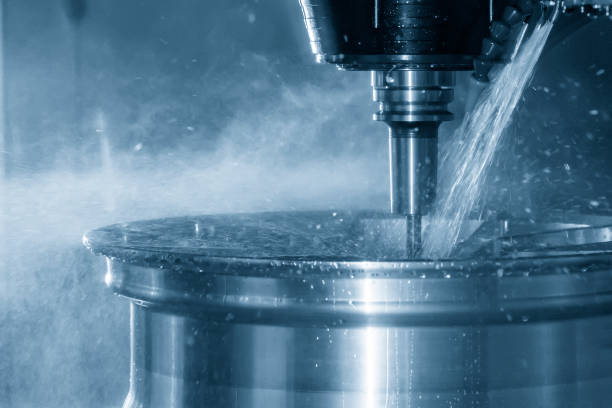In today’s rapidly evolving manufacturing industry, precision is key. Manufacturers around the world strive to produce high-quality products that meet the ever-increasing demands of customers. To achieve this level of precision, many turn to CNC machining, a cutting-edge technology that has revolutionized the manufacturing process.
CNC, or Computer Numerical Control, machining is a process that utilizes computerized systems to control machine tools. Traditional machine tools, such as lathes and mills, are operated manually and rely heavily on the skill and expertise of the operator. However, with CNC machining, the entire process is automated, allowing for greater accuracy, efficiency, and repeatability.
One of the major advantages of precision CNC machining is its ability to produce complex shapes and intricate designs with ease. Through the use of advanced software, manufacturers can create intricate 3D models that are then translated into a set of instructions for the CNC machine. These instructions guide the machine’s movements, ensuring that the final product is produced to exact specifications.
Accuracy is paramount in the manufacturing industry, and precision CNC machining delivers on this front. With the ability to make micro-adjustments and precise movements, CNC machines can produce parts with extremely tight tolerances. This level of precision not only ensures the quality of the end product but also reduces waste and improves overall efficiency.
Efficiency is another key advantage of precision CNC machining. By automating the manufacturing process, CNC machines can operate continuously, 24 hours a day, significantly reducing production time. Additionally, CNC machines can perform multiple operations in a single setup, eliminating the need for manual intervention and reducing the chance of human error. This automated process also reduces labor costs, as fewer operators are required to oversee the machines.
Another benefit of precision CNC machining is its ability to work with a wide range of materials. Whether it be metals, plastics, or composites, CNC machines can handle them all. This versatility allows manufacturers to create a diverse range of products, from small intricate parts to large complex assemblies.
Not only does precision CNC machining offer accuracy and efficiency, but it also provides manufacturers with the flexibility to adapt to changing market demands. With the ability to quickly reprogram the machine and switch between different product designs, manufacturers can respond to customer demands in a timely manner. This flexibility is crucial in today’s fast-paced manufacturing environment, where agility and responsiveness are key to staying competitive.

While precision CNC machining has numerous advantages, it is not without its challenges. The initial investment cost for CNC machines can be substantial, making it inaccessible for some small manufacturers. Additionally, the complexity of the technology requires skilled operators who are proficient in both programming and machine operation. However, these challenges are outweighed by the long-term benefits that precision CNC machining offers.
Precision CNC machining has revolutionized the manufacturing industry by providing a level of accuracy and efficiency that was previously unattainable. Through the use of advanced software and automation, manufacturers can produce complex parts with tight tolerances, reduce waste, and respond quickly to changing market demands. While there are challenges associated with the technology, precision CNC machining remains a key tool for achieving high-quality and cost-effective manufacturing.
-

- Piezas y componentes de fundición a presión de aleación de magnesio para bicicletas eléctricas
-

- Cuadro de bicicleta de montaña de magnesio
-

- Componentes de tixomoldeo de magnesio de alta precisión cubierta de la carcasa del portátil A
-

- Piezas de UAV de fundición a presión de tixomoldeo de aleación de magnesio
-

- Custom-made metal parts macbook middle board produced
-

- Thixomolding parts & components cell phone middle board processed

 0086-750-5616188
0086-750-5616188 +86 13392089688
+86 13392089688 sales@zhongmei-tech.com
sales@zhongmei-tech.com







